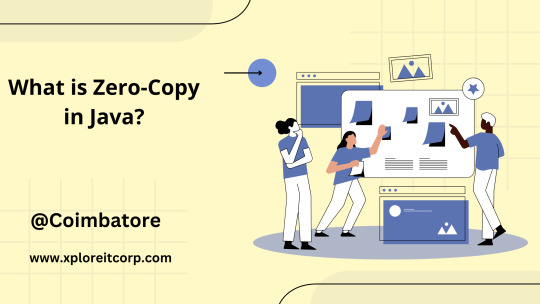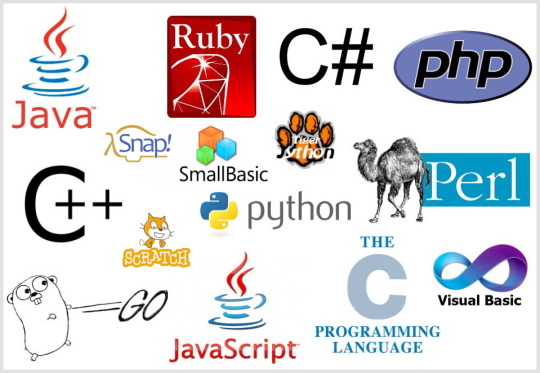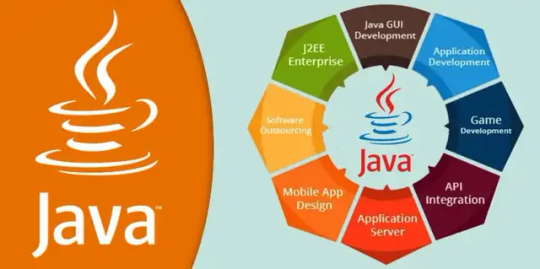#Java programming basics
Explore tagged Tumblr posts
Text
What is Zero-Copy in Java?

Zero-Copy is a technique that allows data to move between storage and network devices without needing to copy it into the application layer. In traditional I/O methods, you deal with several context switches and memory copies, but Zero-Copy cuts down on that, making things faster. This approach is super helpful for high-performance applications like file servers or video streaming services.
How Zero-Copy Works Internally
To get a grip on Zero-Copy in Java, you need to understand how the Java NIO (New Input/Output) package operates. It lets data flow straight from a file channel to a socket channel through methods like transferTo() and transferFrom(). This avoids using the Java heap and saves CPU cycles, which is really useful for anyone taking a Java Full Stack Developer training Course in Coimbatore .
Benefits of Using Zero-Copy
Some of the main benefits are less CPU usage, reduced latency, and better throughput. When applications need to transfer large files, they can do it more smoothly. This is especially relevant in enterprise-level development, which is a big part of the Java Full Stack Developer Course in Coimbatore. Developers learn how to improve server-client communication using features like Zero-Copy.
Use Cases in the Real World
Zero-Copy is popular in web servers, file servers, and video streaming platforms. Companies that need fast data handling tend to use this method. Students in Java Training in Coimbatore can try out Zero-Copy in lab sessions or projects related to file transfers and socket programming.
Zero-Copy vs Traditional I/O
With traditional I/O, data gets copied several times—from disk to kernel buffer, then to user space, and finally to the socket buffer. Zero-Copy skips these extra steps. Understanding this difference is key for anyone learning about performance optimization in server-side apps.
Java NIO and Its Importance
Java NIO was introduced to support scalable and non-blocking I/O tasks. It gives you the tools to implement Zero-Copy. In a Java Course in Coimbatore, you'll learn how NIO helps create fast and efficient applications, an important skill in the Java world.
Challenges and Limitations
Even though Zero-Copy enhances performance, it’s not the best choice for every situation. It's mainly useful for large file transfers rather than small bits of data. Also, debugging can get tricky because there’s less access at the application level. Students in the Java Full Stack Developer Course learn how to wisely decide when to use Zero-Copy.
Industry Demand and Career Impact
Knowing about Zero-Copy in Java can help a developer stand out, especially in roles that require high-performance application development. Many tech companies are on the lookout for skills in this area. For those in Java Training in Coimbatore, mastering these topics can lead to great job opportunities in backend and systems development.
Tools and Libraries Supporting Zero-Copy
Besides Java NIO, other frameworks like Netty also support Zero-Copy. These tools are often covered in advanced modules of a Java Course in Coimbatore. Learners can use these libraries to build scalable, high-performance applications, especially for real-time data tasks.
Conclusion: Master Zero-Copy with the Right Training
So, Zero-Copy in Java is a handy I/O method that's key for modern Java applications. To really get the hang of it, professional training is a must. Enroll in a Java Full Stack Developer Course in Coimbatore or participate in hands-on training at Xplore IT Corp, where they teach practical skills like Zero-Copy and Java NIO.
FAQs: What is Zero-Copy in Java?
1. What is Zero-Copy in Java and why is it useful?
Zero-Copy in Java allows for direct data transfer between disk and network without moving it into application memory, which boosts performance.
2. Which Java package supports Zero-Copy operations?
Java NIO supports Zero-Copy through methods like FileChannel.transferTo() and transferFrom().
3. Can I learn Zero-Copy in a Java Course in Coimbatore?
Yes, good training centers offer detailed modules on Zero-Copy, especially in full stack and advanced Java courses.
4. Is Zero-Copy suitable for all Java applications?
No, it works best for large file transfers or fast data systems where speed is important.
5. Where can I get hands-on training in Zero-Copy and Java NIO?
You can join Xplore IT Corp, recognized for its solid Java Training in Coimbatore and Java Full Stack Developer Course.
#Spring Framework in Java#Java Dependency Injection#Java Spring Boot#Spring Bean Configuration#Java Object Lifecycle#Spring ApplicationContext#Java Backend Development#Java Programming Basics#Spring Initializer#Java Class Loader
0 notes
Text
Post #83: Tumblr Opinion Poll by Python-Programming-Language, Question: Which programming resp. script language do you prefer?, 2023.
#programming#coding#coding is fun#i love coding#learning#education#i love programming#programming language#python#c++#c sharp#visual basic#small visual basic#i love python#php#scratch#html#css#java#javascript#script language#opinion poll
212 notes
·
View notes
Text
I go by no pronouns but not as in my name, more so like my pronouns are an undefined variable in shell coding
#neo.txt#coding#programming#like. 5 people will get this#shell and unix in gen are a pretty niche kinda part of programming#with people more so sticking to python html java and the C family#and i guess sql? SQL counts as a language itself doesn't it?#I haven't really used it outside of making basic databases so I don't know fundamentally what it is and why it was created#anyways this was your fairly-rare-on-tumblr more-common-on-twitter tech ramble
18 notes
·
View notes
Text
Programming Languages For Youths And Adults ...

Programming Languages:
The best ways to learn programming are Snap!, Small Basic, Python, Small Visual Basic, Scratch and TigerJython.
Java
Ruby
C#
PHP
C++
Snap!
Small Basic
Python
Perl
TigerJython
Go
Scratch
C
JavaScript
Visual Basic
Post #234: Programming Languages For Youths And Adults, 2024.
#programming#coding#programmieren#small basic#education#coding for kids#python#scratch#snap!#java#ruby#php#perl#tiger jython#java script#visual basic#programming languages
8 notes
·
View notes
Text
Android App Development Course for Beginners: Learn with Code with TLS
In today’s mobile-first world, mastering Android App Development can open countless career opportunities. Whether you dream of building the next big app or launching your tech career, starting with the right foundation is essential. That’s where Code with TLS comes in — your trusted partner for quality tech education.
Our Android App Development course for beginners is designed to take you from zero coding experience to building fully functional Android applications. With a step-by-step curriculum, hands-on projects, and expert mentorship, you’ll gain the skills needed to create real-world apps confidently.
Why Choose Code with TLS for Android App Development?
At Code with TLS, we believe learning should be practical, engaging, and career-focused. Our Android App Development program offers:
Beginner-Friendly Modules: We start with the basics, introducing Android Studio, Java, and Kotlin — the core technologies for app development.
Hands-On Projects: You'll create real applications like a weather app, task manager, and more to strengthen your skills.
Mentor Support: Our experienced instructors guide you through every concept and challenge.
Updated Curriculum: Stay current with the latest Android versions, UI/UX design trends, and Google Play deployment best practices.
Whether you want to become a freelance app developer, join a tech company, or build your own startup, our course gives you a competitive edge.
Who Should Enroll?
This course is perfect for:
Students curious about mobile technology
Entrepreneurs wanting to build their own app
Tech enthusiasts starting their programming journey
Working professionals upgrading their digital skills
No prior coding experience is required — just passion and dedication!
Get Started with Code with TLS Today!
Code with TLS stands out as a Tech Course Provider by combining quality education with real-world applications. Our mission is to empower beginners to become confident Android developers ready for today’s job market.
Enroll now and unlock your potential in the booming field of Android App Development. Learn, build, and succeed with Code with TLS — where your tech journey begins.
#Android App Development#Learn Android App Development#Android App Development Course#Android Development for Beginners#Best Android App Course#Tech Course Provider#Code with TLS#Mobile App Development Training#Beginner Android Programming#Android Studio Basics#Kotlin for Android Development#Java for Android Apps#Mobile App Developer Course#Android App Building#Start Android Development
0 notes
Text

🚀 Future-Proof Your Career with a Computer Science Degree! 💻
🌟 A career in computer science isn’t just about coding—it’s about revolutionizing the world. 💥 From designing cutting-edge software to creating intelligent systems, computer science professionals are the architects of tomorrow. Whether you're passionate about AI, data science, or cybersecurity, this course will ignite your journey toward a successful, high-demand career. 🌐
💡 Why Choose Computer Science?
Incredible job opportunities in tech-driven industries 💼
Competitive salaries with potential to grow 📈
Work at the forefront of AI, machine learning, and software engineering 🤖
Continuous innovation—you’ll never stop learning! 📚
💻 What You’ll Learn:
Fundamental programming languages like Python, Java, and C++ 🔧
Real-world applications in AI, cloud computing, and app development 🖥️
Skills in problem-solving and analytical thinking to tackle tech challenges 🌍
Insights into future technologies that are shaping the digital landscape 🚀
Learn and Enhance your computer science knowledge:
#computer science#computer technology#python training#java script#c++ programming#c programming basics#mysql
0 notes
Text
Basic Characteristics of Tuple in Java
Let us see the basic characteristics of Tuple in Java:

#java#programming#javaprogramming#code#coding#engineering#software#softwaredevelopment#education#technology#tuple#javatuple#characteristics#basic#online
1 note
·
View note
Text
What is the basic fundamental of Java?

Java is a powerful, object-oriented programming language that is widely used in the software industry for building scalable, secure, and platform-independent applications. Whether you are a beginner exploring the world of coding or an experienced developer brushing up on core concepts, understanding the basic fundamentals of Java is crucial.
In this article, we’ll explore the key principles that make up the foundation of Java programming and why mastering them is essential for any developer.
Why Learn Java Fundamentals First?
Java is not just a language—it’s a comprehensive ecosystem. Grasping the basics helps you write efficient code, debug effectively, and transition smoothly to more advanced topics like frameworks, APIs, and libraries.
Foundational knowledge is often what sets apart a beginner from a confident coder.
1. Java Syntax and Structure
Every Java program must follow a specific structure and syntax. The code is organized into classes and methods, and Java is case-sensitive. Here’s a quick overview of the structure:
java
public class HelloWorld {
public static void main(String[] args) {
System.out.println("Hello, World!");
}
}
Key Elements:
class: Everything in Java revolves around classes.
main(): Entry point of any Java application.
System.out.println(): Used to print output.
2. Data Types and Variables
Understanding data types is one of the most fundamental parts of programming in Java. Java is a statically typed language, meaning variables must be declared before use.
Primary Data Types:
int – integers
double – floating-point numbers
char – single characters
boolean – true or false
Variable Example:
java
int age = 25;
boolean isStudent = true;
3. Control Flow Statements
Control flow dictates how a program runs and under what conditions certain blocks of code are executed.
Main Control Statements:
if, else if, else
switch
for, while, do-while loops
break, continue
Example:
java
if (age > 18) {
System.out.println("Adult");
} else {
System.out.println("Minor");
}
4. Object-Oriented Programming (OOP)
Java is fundamentally an object-oriented language. This means that the design of the program revolves around creating objects from classes.
Core OOP Principles:
Encapsulation – Binding data and methods together
Inheritance – Reusing code from one class in another
Polymorphism – One interface, many implementations
Abstraction – Hiding internal implementation details
Example:
java
class Animal {
void sound() {
System.out.println("Animal makes a sound");
}
}
class Dog extends Animal {
void sound() {
System.out.println("Dog barks");
}
}
Understanding OOP is vital if you want to build scalable and maintainable applications in Java. These principles are taught step-by-step in the Best Java course in Chandigarh, which focuses on both theory and real-time project application.
5. Java Methods and Functions
In Java, methods are blocks of code that perform a specific task and can be reused.
Method Syntax:
java
public static int add(int a, int b) {
return a + b;
}
Methods help you:
Break down complex problems
Avoid code repetition
Improve readability
6. Arrays and Collections
Java provides tools to store multiple values:
Arrays: Fixed-size, same data type
ArrayList, HashMap, HashSet (Collections): Flexible and dynamic
Example:
java
int[] numbers = {1, 2, 3, 4};
System.out.println(numbers[0]); // Output: 1
Collections are particularly useful in real-world Java development where data needs to be stored, searched, or manipulated efficiently.
7. Exception Handling
Errors are inevitable. Java provides a robust exception handling system that ensures your application doesn't crash unexpectedly.
Syntax:
java
try {
int divide = 10 / 0;
} catch (ArithmeticException e) {
System.out.println("Cannot divide by zero");
}
Handling exceptions makes your code more resilient and user-friendly.
8. Java Development Tools
Java developers rely on a variety of tools for writing, testing, and deploying code, such as:
IDEs like IntelliJ IDEA or Eclipse
Build tools like Maven or Gradle
Version control systems like Git
Debuggers and profilers for performance monitoring
Learning how to use these tools early on will help you become an efficient developer.
Conclusion
The basic fundamentals of Java—from syntax and variables to object-oriented principles and exception handling—are essential stepping stones for every programmer. Whether you aim to build Android apps, enterprise solutions, or web applications, these core concepts are non-negotiable.
If you’re looking to get a solid foundation with hands-on practice and expert guidance, enrolling in the Best Java course in Chandigarh can significantly accelerate your learning journey. These courses typically include project-based learning, resume-building exercises, and mentorship to help you succeed in real-world scenarios.
0 notes
Text
Crack the Code: A Complete Guide for Java Course

Are you interested in taking a Java course? Java has become quite popular among developers in recent years, prompting many people to enroll in Java courses to improve their skills and enhance their career opportunities. According to recent data, there has been a significant 45% increase in demand for Java developers this year, resulting in a 33% rise in job postings. The demand for Java developers is primarily driven by the growing prevalence of web applications and mobile apps that rely on Java technology. By enrolling in a Java course, you can enjoy several benefits, including the opportunity to enhance your problem-solving abilities, expand your job prospects, and gain the ability to develop complex and efficient software systems.
One of the great things about Java is its versatility, allowing developers to create both sophisticated applications and simple game scripts. Moreover, Java's compatibility across different platforms has made it a popular choice for many businesses. Major companies like Amazon, IBM, and Oracle have all adopted Java as the programming language for their internal projects, further solidifying its importance in the industry. Learn More : Java Course: Everything You Need To Know
0 notes
Text
What Is Object-Oriented Programming in Java and Why Does It Matter?

Java is super popular in the programming world, and one of the main reasons for that is its use of object-oriented programming (OOP). So, what exactly is OOP in Java, and why should you care? OOP is a way to organize your code by grouping related data and functions into objects. This makes Java easier to work with, more organized, and simpler to update.
Key Ideas Behind Object-Oriented Programming
To get a grip on OOP in Java, you need to know four main ideas: Encapsulation, Inheritance, Polymorphism, and Abstraction. These concepts help you write clean and reusable code, which is pretty important in software development today.
Encapsulation: Keeping Data Safe
Encapsulation means protecting the internal data of an object from being accessed directly. You do this using private variables and public methods. When you take a Java course in Coimbatore, you’ll learn how this helps keep your code secure and safeguards data from accidental changes.
Inheritance: Building on Existing Code
Inheritance lets a new class take on the properties of an existing class, which cuts down on code repetition and encourages reuse. Grasping this idea is key if you want to dive deeper into Java development, especially in a Java Full Stack Developer course in Coimbatore.
Polymorphism: Flexibility in Code
Polymorphism allows you to treat objects as if they are from their parent class rather than their specific class. This means you can write more flexible code that works across different cases. You’ll definitely encounter this in Java training in Coimbatore, and it’s essential for creating scalable applications.
Abstraction: Simplifying Complexity
Abstraction is all about hiding the messy details and only showing what’s necessary. For example, when you use your smartphone, you don’t need to understand how everything works inside it. Java uses abstract classes and interfaces to make things simpler, which you’ll notice in any solid Java course in Coimbatore.
Why It Matters in Real Life
So, circling back: What is OOP in Java and why is it important? Its real strength comes from making big software projects easier to manage. OOP allows multiple developers to work on their parts without stepping on each other’s toes.
OOP and Full Stack Development
Full stack developers cover both the frontend and backend. Understanding OOP in Java can make your backend logic much better. That’s why a Java Full Stack Developer Course in Coimbatore focuses on OOP right from the start.
Java and Your Career Path
If you're looking to become a software developer, getting a good handle on OOP is a must. Companies love using Java for building big applications because of its OOP focus. Joining a Java training program in Coimbatore can help you get the practical experience you need to be job-ready.
Wrapping Up: Start Your Java Journey with Xplore IT Corp
So, what is object-oriented programming in Java and why is it important? It’s a great way to create secure and reusable applications. Whether you’re interested in a Java Course in Coimbatore, a Full Stack Developer course, or overall Java training, Xplore IT Corp has programs to help you kick off your career.
FAQs
1. What are the main ideas of OOP in Java?
The key ideas are Encapsulation, Inheritance, Polymorphism, and Abstraction.
2. Why should I learn OOP in Java?
Because it’s the foundation of Java and helps you create modular and efficient code.
3. Is it tough to learn OOP for beginners?
Not really! With good guidance from a quality Java training program in Coimbatore, it becomes easy and fun.
4. Do I need to know OOP for full stack development?
Definitely! Most backend work in full stack development is based on OOP, which is covered in a Java Full Stack Developer Course in Coimbatore.
5. Where can I find good Java courses in Coimbatore?
You should check out Xplore IT Corp; they’re known for offering the best Java courses around.
#Java programming#object-oriented concepts#Java syntax#Java classes#Java objects#Java methods#Java interface#Java inheritance#Java encapsulation#Java abstraction#Java polymorphism#Java virtual machine#Java development tools#Java backend development#Java software development#Java programming basics#advanced Java programming#Java application development#Java code examples#Java programming logic
0 notes
Text

#java#java tutorial#what is java#java programming#learn java#java basics#java with example#tutorialandexample
1 note
·
View note
Text
i need to do my java assignment. i need to start my java assignment. i need to open my java assignment and look at it. i need to do my java assignment. i need to do my java assignment. i need to complete to-dos in my java assignment. i need to do my java assignment.
(<- is too afraid and overwhelmed to write a single new line of code in the java assignment)
#H E L P#it was due last sunday (yesterday) but i got an extension til thursday#.......i.....havent started it yet#also last time i tried running my payara server it..... didnt work. so that uh sux. cant rllycheck if anything i do WORKS if i cant RUN IT#the specific note on brightspace for troubleshooting ur payara install basically boils down to 'haha... good luck'#guess ill try dicking w the port numbers or smth :/#ANYWAYS uhhhh yeah. had weeks but nope. The Fear Is In Me And His Name Is Java EE & JSF & JPA & EJB & Bootstrap#so many abbreviations......#at least MySQL server isnt letting me down FOR ONCE.#god shit fucking damn i hate programming i just want these stupid courses done so i can graduate and NEVER LOOK AT JAVA AGAIN#i hate college
1 note
·
View note
Text
Post #151: Survey - Which programming language offers the best start into the world of programming?, 2023.
#programming#programmieren#small basic#education#Programmiersprache#programming languages#survey#php#java#python#javascript#ruby#tigerjython#c#c sharp#small visual basic#visual basic .net#coding#programming language
8 notes
·
View notes
Audio
i made this specifically because i had a teacher in a high school programming class who loved Fountains of Wayne but hated Wang Chung so for one assignment i figured out how to play audio in a program and submitted it with this playing somewhere in the background as an easter egg. this was probably the funniest thing i did in high school
#this guy was severely underqualified to teach programming#he was the spanish teacher and demanded that we (his programming class) also call him his spanish name#he then changed the class from visual basic (kinda bad) to scratch (really bad)#high schoolers can probably understand java you dingbat#at least enough of it to do slightly impressive things
9 notes
·
View notes
Text
So a cool thing my granddad* Alan Turing figured out is Turing Equivalence:
Basically he designed a super simple hypothetical computer, and proved mathematically that it can do everything a more complicated computer can do, just maybe slower or faster.
This is normally brought up for the factoid that could run Doom on Xty Million Crabs, but it also applies to programming languages, not just computers.
See, it means that every programming language is equally "powerful", assuming it's Turing Complete (which is basically just "can do the things this minimal computer can do", which is basically every language except a couple simple theming languages and macro scripting systems), it's just easier or harder to do specific things in a given language. But they can still be done.
So this means the C/C++ your OS and browser was written in is just as powerful as everything else. The Java used for Minecraft and Android phones, the Javascript used for webpages, the C# used Unity, the BASIC used on 80s computers, and DickCode, the joke programming language I made as a university student which had only eight operators, but all eight were different ascii penises a la "8==D".
All equally powerful. You could write an OS, video game, or AI bot in any of these. It just might be a little slower or faster and easier or harder to do (especially DickCode, that one is very Hard).
Aren't computers neat?
*not my actual granddad but I am named Turing
537 notes
·
View notes
Text
the inevitable tension between:
In an effort to demystify programming, which many people still think of as a skill that requires some sort of exceptional intelligence or training, I will always emphasize that basically anyone can do simple programming tasks like creating their own browser extension or simple website, using SQL to query a database, making data visualizations with matplotlib, etc. You can learn to do this in a week. If you're not sure you can for real just ask me (dm here or on Discord). it IS easy and anyone CAN do it! This isn't me saying "learn to code to get a job," which used to be decent advice 5 years ago but isn't any more because of AI and market saturation. More just "if there is something you want to do, at work or as a personal thing, that requires programming skills you think you might not have, I bet you can do it anyway. Do it!"
Okay maybe the reason I think this way is because my dad was teaching me Java when I was literally 8 years old
103 notes
·
View notes